Literary rating: ★½
Kick-butt quotient: ☆☆☆
 To be fair, the low rating here is not necessarily just the author’s fault. It was only almost at the end – when I was checking to see how much more I had to endure – that I discovered a salient fact. While this is described as being “Book 1” in the series, it appears to be a follow-up to the same writer’s five-volume Hunter Circles series. The heroine there, Krystin Blackwood, turns up in a cameo here, as do other characters, and it’s quite possible this would make more sense if you’d read that series. However: if you call your novel “Book 1”, it should be capable of standing on its own merits. Otherwise, call it “Book 6,” dammit.
To be fair, the low rating here is not necessarily just the author’s fault. It was only almost at the end – when I was checking to see how much more I had to endure – that I discovered a salient fact. While this is described as being “Book 1” in the series, it appears to be a follow-up to the same writer’s five-volume Hunter Circles series. The heroine there, Krystin Blackwood, turns up in a cameo here, as do other characters, and it’s quite possible this would make more sense if you’d read that series. However: if you call your novel “Book 1”, it should be capable of standing on its own merits. Otherwise, call it “Book 6,” dammit.
As is, for a rookie reader, the does a really poor job of world building, presuming far too much of the background as known, and setting up situations where the reader is left entirely in the dark about who is doing what to whom, and why. The heroine is Ava Locke, who was previously part of a team of demon hunters, involved in a secret war between the forces of light and darkness. Save Ava, all her team were wiped out by Veynix, one of the enemy demons. She goes into her side’s version of witness protection, yet ends up the masked champion at an underground fight ring which pits demons against humans. That is, until her identity is exposed, and it turns out Veynix (and his collection of venomous poisons) is on her trail again. And the authorities behind Ava don’t exactly have her back.
For this novice reader, it was a real struggle, and if I didn’t feel like I had to write a review, this would likely have been a DNF (did not finish). The first half in particular, felt like really lazy writing, elements being dropped in without explanation. Even after I got to the end, and saw the semi-helpful chart at the back, I’m still not sure what a Hunter Circle is supposed to be or do. And is there magic – sorry, magik – or not? Seems most people can teleport at will, but other magic is… vague. [I have no clue about the significance of Ember witch magik] Some have it, others don’t. And a central character uses it once, then conveniently “forgets” they have it for the rest of the book – until it becomes necessary to the plot at the end. If I’d been reading a physical copy of this, and not an e-book, such a convenient contrivance would likely have led to it sailing across the room at that point.
There is a fair amount of action, from Ava’s fight-club contests, building to a battle against Veynix in his lair, and these are hard-hitting encounters. I just didn’t care about them or or the outcome, since I had no investment in either the participants or the world they inhabited. #RemoveFromDevice
Author: Jessica Gunn
Publisher: Amazon Digital Services, available through Amazon both for Kindle and as a paperback.
Book 1 of 2 in the Deadly Trades series.





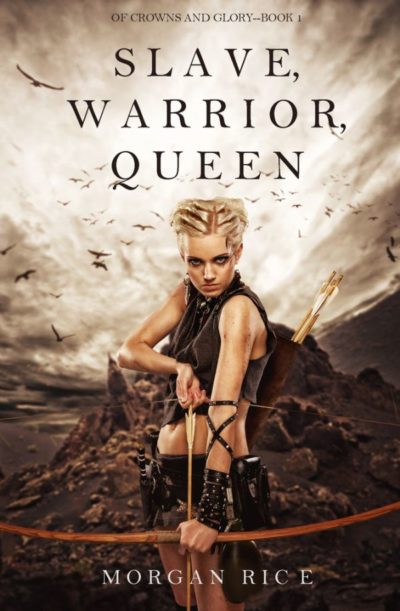 author is certainly prolific: this series, Of Crowns and Glory is eight books, yet only her
author is certainly prolific: this series, Of Crowns and Glory is eight books, yet only her  This slice of British televisual fantasy was offered up on Christmas Day, and provides a pleasant, warm and unchallenging slice of family fare. It takes place in a world where magic has ruled, but is gradually fading from consciousness and being replaced by technology. The magic appears connected to the dragons with which humanity shared the planet, uneasily. After previous battles, a kind of apartheid was set up, with the world divided into dragon and human areas. Overseeing the peace is the Dragonslayer, who is charged with killing any dragons who violate the treaty and attack humans or their territory. But some members of mankind are casting envious eyes on the unspoiled territory of the dragons, and would love an excuse to take it over.
This slice of British televisual fantasy was offered up on Christmas Day, and provides a pleasant, warm and unchallenging slice of family fare. It takes place in a world where magic has ruled, but is gradually fading from consciousness and being replaced by technology. The magic appears connected to the dragons with which humanity shared the planet, uneasily. After previous battles, a kind of apartheid was set up, with the world divided into dragon and human areas. Overseeing the peace is the Dragonslayer, who is charged with killing any dragons who violate the treaty and attack humans or their territory. But some members of mankind are casting envious eyes on the unspoiled territory of the dragons, and would love an excuse to take it over.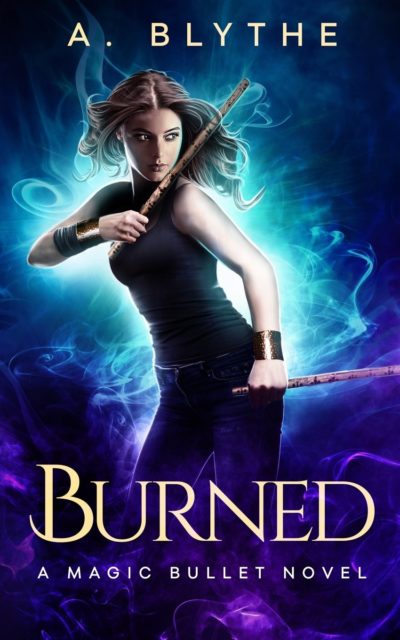 My name is Alyse Winters. I used to be a
My name is Alyse Winters. I used to be a 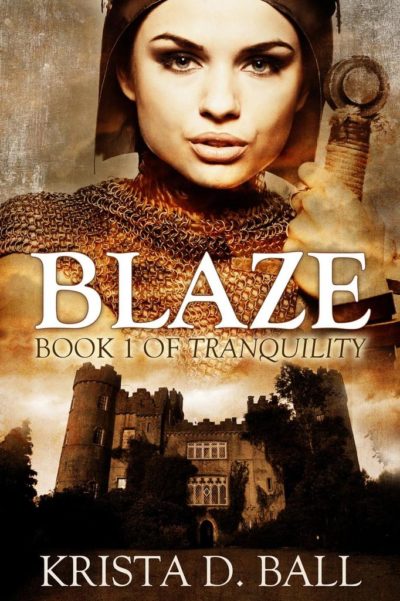 The half-elven Lady Bethany has shattered the glass ceiling for women in the military forces, rising to third in command, a position she has achieved on her own merit. Of course, it probably didn’t hurt that she is daughter of the goddess Apaxia, although her ancestry causes as many problems as it solves. This is due partly to some pesky secret prophecies which outline – in typically vague prophetic ways, with references to the “Diamond” and the “Viper” – Bethany’s very important place in future events, and partly her estranged twin sister, Sarissa. For she has turned to the dark side of magic, insanely jealous of her sister’s success, with the emphasis squarely on “insanely” there…
The half-elven Lady Bethany has shattered the glass ceiling for women in the military forces, rising to third in command, a position she has achieved on her own merit. Of course, it probably didn’t hurt that she is daughter of the goddess Apaxia, although her ancestry causes as many problems as it solves. This is due partly to some pesky secret prophecies which outline – in typically vague prophetic ways, with references to the “Diamond” and the “Viper” – Bethany’s very important place in future events, and partly her estranged twin sister, Sarissa. For she has turned to the dark side of magic, insanely jealous of her sister’s success, with the emphasis squarely on “insanely” there… I was one of the few who didn’t mind
I was one of the few who didn’t mind  The saying, “You only live twice,” is supposed to be a metaphor, but for Eden Hunter, it ends up being very much a statement of fact. She’s a former con-artist, dragged back from beyond the grave by vampire warlord, Aldric. He puts her to work on a hidden island as his personal soul-harvester, with a strict quota per week. It’s not great work, but it’s steady – at least until Eden’s beach-front house is attacked by a werewolf with murder on its furry mind. She then finds herself seen by the FBI as their prime suspect after an old partner in confidence tricks turns up dead on her doorstep. But, wait! There’s more! She has to deal with the rain goddess – presumably, the source of the title – to whom Eden is also in thrall, and whose rules she just broke. A gang involved in robbing her boss of millions in gold bullion. Her dead sister. A serial-killer politician. Oh, and a talking cat.
The saying, “You only live twice,” is supposed to be a metaphor, but for Eden Hunter, it ends up being very much a statement of fact. She’s a former con-artist, dragged back from beyond the grave by vampire warlord, Aldric. He puts her to work on a hidden island as his personal soul-harvester, with a strict quota per week. It’s not great work, but it’s steady – at least until Eden’s beach-front house is attacked by a werewolf with murder on its furry mind. She then finds herself seen by the FBI as their prime suspect after an old partner in confidence tricks turns up dead on her doorstep. But, wait! There’s more! She has to deal with the rain goddess – presumably, the source of the title – to whom Eden is also in thrall, and whose rules she just broke. A gang involved in robbing her boss of millions in gold bullion. Her dead sister. A serial-killer politician. Oh, and a talking cat.
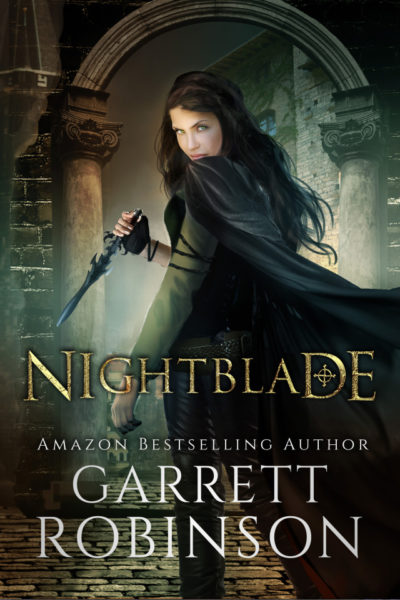 One of the common problems I’ve found with fantasy novels is establishing the universe. It’s clearly going to be very different from the reader’s, and the author needs to get them up to speed on how things work in the book’s setting. If this isn’t done quickly and effectively, the reader can be left floundering in a world they know nothing about. Robinson uses a neat trick to get around this. His heroine, Loren, basically knows nothing about it either, because she has been brought up in a remote rural area. Virtually all she knows about life outside the woods comes from tales told to her by an itinerant tinker, and her dreams of becoming a heroic thief seem no more than fantasies.
One of the common problems I’ve found with fantasy novels is establishing the universe. It’s clearly going to be very different from the reader’s, and the author needs to get them up to speed on how things work in the book’s setting. If this isn’t done quickly and effectively, the reader can be left floundering in a world they know nothing about. Robinson uses a neat trick to get around this. His heroine, Loren, basically knows nothing about it either, because she has been brought up in a remote rural area. Virtually all she knows about life outside the woods comes from tales told to her by an itinerant tinker, and her dreams of becoming a heroic thief seem no more than fantasies.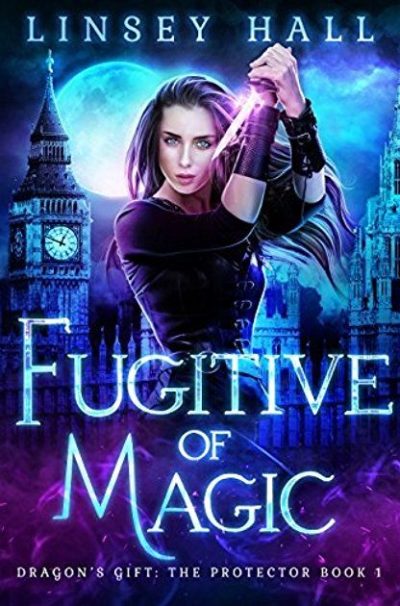 It’s probably worth noting that although this is Volume 1 in the somewhat clunkily-named “Dragon’s Gift: The Protector” series, it follows in the wake of two other Dragon’s Gift threads by the same author, The Huntress and The Seeker. While you don’t need to have read those to enjoy this, it does explain a structure, which could seem somewhat odd. For the volume sets up a trio of treasure-hunting magicians – Cass, Del and Nix – then all but discards the first two and concentrates heavily on Nix. Turns out Cass and Del were the subjects of the Huntress and Seeker sagas respectively, and the Protector gives Nix her turn in the spotlight. This is why some aspects, such as the shop run by the three women, seems more than a bit undeveloped: I presume they were featured in the ten or so previous volumes set in the same world.
It’s probably worth noting that although this is Volume 1 in the somewhat clunkily-named “Dragon’s Gift: The Protector” series, it follows in the wake of two other Dragon’s Gift threads by the same author, The Huntress and The Seeker. While you don’t need to have read those to enjoy this, it does explain a structure, which could seem somewhat odd. For the volume sets up a trio of treasure-hunting magicians – Cass, Del and Nix – then all but discards the first two and concentrates heavily on Nix. Turns out Cass and Del were the subjects of the Huntress and Seeker sagas respectively, and the Protector gives Nix her turn in the spotlight. This is why some aspects, such as the shop run by the three women, seems more than a bit undeveloped: I presume they were featured in the ten or so previous volumes set in the same world.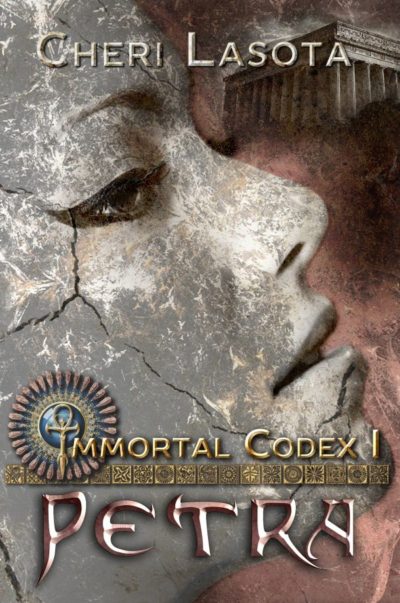 Petra is a teenage Roman slave at around the birth of Christ. She is completely under the thumb of her sadistic master, Clarius, until a strange conjunction of events and a poisonous herb with mystical qualities changes the power dynamic entirely. Both of them, together with her lover, Lucius, attain immortality. But it’s an immortality which requires the two men to drink from Petra annually, or they will degenerate into sub-human monsters. Neither is happy with the arrangement: Clarius is not used to being reliant on anyone, least of all his former property, and Lucius hates the fact Petra agreed to submit to their ex-master, in order to save him. As the centuries stretch into millennia, Petra begins, slowly, to put together a group people who will be capable of defeating Lucius and the immortals he has recruited, allowing her to live in eternal peace with Lucius.
Petra is a teenage Roman slave at around the birth of Christ. She is completely under the thumb of her sadistic master, Clarius, until a strange conjunction of events and a poisonous herb with mystical qualities changes the power dynamic entirely. Both of them, together with her lover, Lucius, attain immortality. But it’s an immortality which requires the two men to drink from Petra annually, or they will degenerate into sub-human monsters. Neither is happy with the arrangement: Clarius is not used to being reliant on anyone, least of all his former property, and Lucius hates the fact Petra agreed to submit to their ex-master, in order to save him. As the centuries stretch into millennia, Petra begins, slowly, to put together a group people who will be capable of defeating Lucius and the immortals he has recruited, allowing her to live in eternal peace with Lucius.